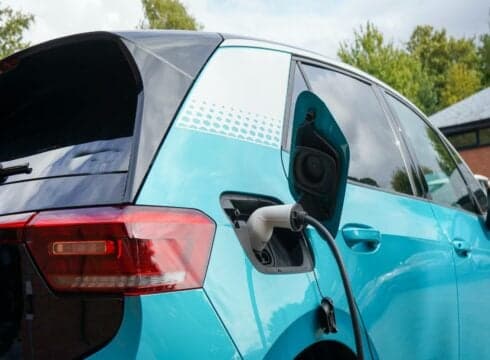The Centre announced a new scheme to promote e-mobility in the country, following the conclusion of the second phase of the FAME-II programme
Similar to FAME II, EMPS will mandate a three-year warranty, but it lacks clarity on after-sales service and whether the battery is included in the comprehensive warranty
While both schemes subsidise EV sales, EMPS offers reduced incentives and supports fewer categories compared to FAME
Inc42 Daily Brief
Stay Ahead With Daily News & Analysis on India’s Tech & Startup Economy
Electric vehicle (EV) makers will need to prioritise localisation for models subsidised under the Electric Mobility Promotion Scheme (EMPS), which replaces the previous FAME II programme.
Besides, they must offer a three-year or 20,000-km comprehensive warranty for two-wheeler buyers and an 80,000-km warranty for three-wheelers to qualify for the scheme, as per ET’s report.
The Centre announced a new scheme to promote e-mobility in the country, following the conclusion of the second phase of the Faster Adoption and Manufacturing of Electric Vehicles (FAME-II) programme on March 31, 2024.
“The manufacturers’ comprehensive warranty will have to cover the EV battery, the most crucial component of the vehicle, besides ensuring that there are adequate facilities for after-sales service for the life of sold vehicles,” a senior government official told ET.
The scheme, scheduled to run for four months until June 2024, will offer financial support of INR 10,000 per two-wheeler and INR 25,000 for small three-wheelers.
Similar to FAME II, EMPS will mandate a three-year warranty, but it lacks clarity on after-sales service and whether the battery is included in the comprehensive warranty. While both schemes subsidise EV sales, EMPS offers reduced incentives and supports fewer categories compared to FAME.
EMPS is being seen as a special bridge scheme that will run for four months from April 1 to minimise disruption in EV sales due to the FAME programme lapsing.
EMPS is expected to pave the way for a comprehensive electric vehicle scheme, likely to be unveiled in the FY25 budget post-elections. As per the EMPS policy, domestically manufactured vehicles will qualify for subsidies. Unlike FAME II, EMPS allows EV manufacturers to import parts while localizing production gradually. Companies must establish component manufacturing before availing incentives to prevent potential misuse, an official told ET.
According to the document, only cells and the battery management system can be imported. The traction battery pack, inside which these components go, is to be assembled domestically. Additionally, all other components, including power and control wiring harness, wheel rim integrated with hub motor, and traction motor controller, must be produced domestically.
FAME II, which began in 2019, ends this month. On March 7, the Centre reportedly granted a temporary four-month extension to the second phase of the FAME-II programme.
FAME-II initially had a total budget of INR 10,000 Cr for supporting the adoption of EVs in India. While the industry had been requesting the Centre to extend the scheme beyond March 2024, the finance ministry recently approved an additional budget of INR 1,500 Cr for the programme.
With the additional budget allocation, the subsidies allotted under FAME-II for electric two, three, and four-wheelers were updated to INR 7,048 Cr, with a significant portion of INR 5,311 Cr earmarked specifically for electric two-wheelers.
The second phase of the scheme was initially slated to support 10 Lakh electric two-wheelers, 5 Lakh electric three-wheelers, 7,000 electric buses, and 55,000 electric four-wheeler passenger cars through subsidies.
{{#name}}{{name}}{{/name}}{{^name}}-{{/name}}
{{#description}}{{description}}...{{/description}}{{^description}}-{{/description}}
Note: We at Inc42 take our ethics very seriously. More information about it can be found here.


